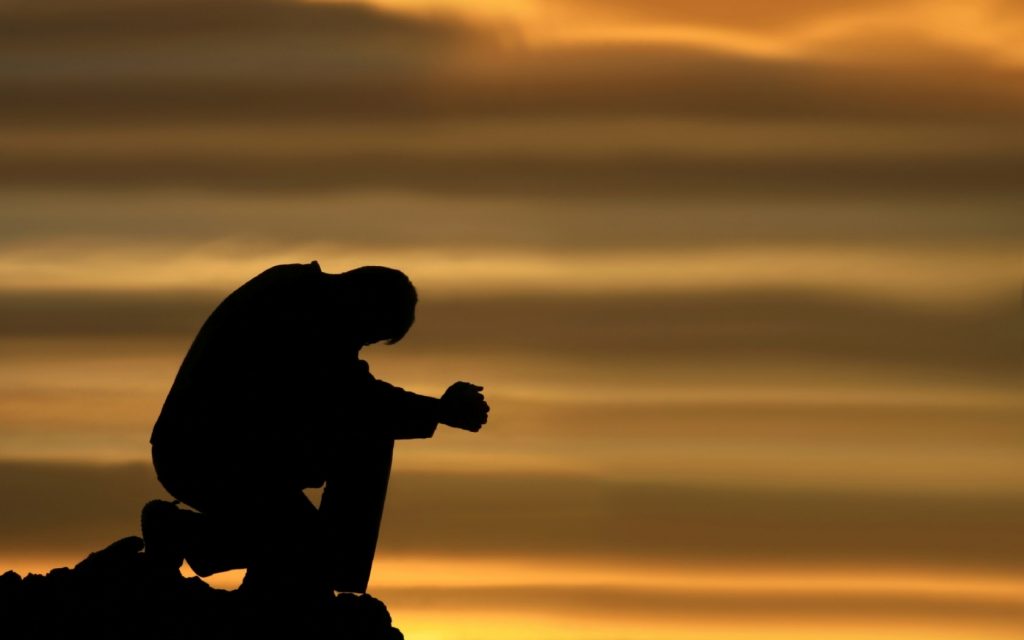The Bahá’í teachings offer a profound exploration of spiritual practices that seek to awaken the human spirit, prompting deeper introspection and societal change. Central to these teachings are the concepts of “tearing the veil” and “taking a knee,” both of which serve as metaphors for spiritual disruption. Might one ponder the implications of adopting such practices in a world defined by complacency and indifference? In what ways can these acts of spiritual defiance instigate personal and communal transformation?
To embark on this inquiry, it is essential to dissect the meaning behind these potent symbols rooted in Bahá’í philosophy. The act of “ripping the veil” represents a conscious decision to transcend superficial understandings of faith and existence. It is a bold proclamation against the barriers that impede spiritual growth. Similarly, “taking a knee,” often associated with kneeling in prayer or protest, reflects a posture of humility and submission to a higher authority, as well as the resolve to challenge societal norms.
At its core, the Bahá’í faith delineates the concept of God as a transcendent force, omnipresent yet often shrouded in layers of misunderstanding and misconception. The “veil” here is emblematic of ignorance and the myriad distractions that preclude individuals from perceiving divine truths. To “rip the veil” is to engage actively in the pursuit of knowledge, dismantling the constructs that bind one’s consciousness. This is not merely a solitary endeavor but a collective movement towards enlightenment. Bahá’u’lláh, the founder of the Bahá’í faith, implores adherents to seek truth devoid of prejudice or preconceived notions.
In the contemporary context, the phrase “taking a knee” has evolved beyond religious connotations, encapsulating a broader range of social justice movements. This act symbolizes resistance against oppression and a plea for recognition of human dignity. For Bahá’ís, it reinforces the idea that spirituality should manifest in unequivocal actions aimed at promoting justice and equity. Every individual has a moral duty to stand against injustices, and taking a knee serves as a powerful reminder of this ethical imperative.
An integral aspect of tearing the veil involves fostering an environment of open discourse. Engaging individuals from diverse backgrounds in meaningful conversations can facilitate a collective understanding of spiritual truths. This approach acknowledges that each person possesses unique insights that can contribute to a more holistic perspective. Thus, we are prompted to pose the question: How can we create platforms for dialogue that honor multiple viewpoints while aiming for collective enlightenment?
Furthermore, the juxtaposition of spiritual practices with societal action is critical. The Bahá’í teachings emphasize the unity of religion and science, advocacy for human rights, and the need for global citizenship. To embody these principles, Bahá’ís are called to partake in both personal and communal acts of disruption—ripping the veil of ignorance and taking a knee in solidarity with the oppressed. This dual engagement galvanizes efforts towards societal transformation and individual spiritual awakening.
Nonetheless, the call to action is laden with challenges. Resistance may emerge from within and without; entrenched beliefs can stifle the quest for truth, while societal structures may push back against the ideals of justice and equity. It is crucial for individuals to cultivate resilience in the face of adversity. This engagement calls for both introspection and external action, effectively blurring the line between the two. In this realm, taking a knee becomes a meditative reflection as much as a public statement.
Exploring the narrative of resistance within the Bahá’í teachings prompts a reflection on historical and contemporary instances of spiritual disruption. The movement emerged amidst profound religious separation and societal upheaval, presenting an opportunity for change that requires unwavering commitment. For many Bahá’ís, the act of taking a knee in prayer is not merely an expression of humility but also an assertive stance against divisiveness—a commitment to fostering unity amidst diversity.
Moreover, the Bahá’í perspective on the interconnectedness of humanity highlights the urgency of addressing issues of systemic inequality. Ripping the veil of socio-economic injustice calls for a radical re-envisioning of societal structures, prioritizing the advancement of marginalized communities. This intersection between personal spirituality and collective responsibility paves the way for transformative social action that is deeply rooted in Bahá’í principles.
As one contemplates the intersection of ripping the veil and taking a knee, it becomes evident that these acts are intertwined, feeding into the broader narrative of human advancement. The reliance on divine assistance, coupled with acts of courage, propels the individual and society towards a brighter future, unfettered by the veils of ignorance and apathy. In reimagining the act of kneeling, one acknowledges that this gesture is as much about submission to the divine will as it is a powerful proclamation of resistance to societal ills.
To conclude, the Bahá’í teachings on spiritual disruption embody a synthesis of personal devotion and social advocacy. Through tearing the veil of ignorance and taking a knee in solidarity, individuals can engage meaningfully with both their inner spiritual journey and the challenges of the external world. Can we dare to embrace these challenges, fostering a movement of renewal and transformation that resonates across diverse communities? The journey begins with a single act of faith, igniting a fervor that has the potential to reshape the world.
